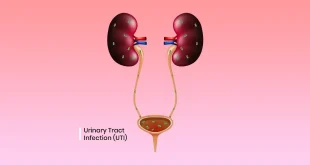Alcohol Detox Rehab: What To Know
Alcohol detox is the first critical step in the journey toward recovery from alcohol addiction. It involves the process of eliminating alcohol from the body and managing withdrawal symptoms under medical supervision. Understanding the dynamics of alcohol detox rehab is essential for anyone considering this path to sobriety.

What Alcohol Detox Involves
Alcohol detox is designed to safely manage the acute physical symptoms of withdrawal associated with stopping alcohol consumption. This process is crucial because alcohol withdrawal can be severe and, in some cases, life-threatening. Detox typically occurs in a controlled environment where healthcare professionals can monitor the individual’s health and ensure safety.
Importance of Medical Supervision
Medical supervision during detox is vital due to the potential severity of withdrawal symptoms. Common symptoms include anxiety, tremors, nausea, and sweating. In more severe cases, individuals may experience hallucinations, seizures, or delirium tremens (DTs), which can be fatal if not properly managed. Healthcare providers can administer medications to alleviate symptoms and prevent complications, ensuring a safer detox process.
Stages of Detox
Initial Assessment: A comprehensive evaluation of the individual’s health, addiction history, and any co-occurring mental health disorders.
Acute Withdrawal Phase: This stage involves managing the immediate symptoms of withdrawal, which typically begin within hours of the last drink and peak within 1 to 3 days.
Stabilization: Focuses on continued medical support and the introduction of therapeutic interventions to prepare individuals for ongoing treatment.
Transition to Treatment: Detox is followed by a structured addiction treatment program, which is essential for long-term recovery.
Role of Medications in Detox
Medications play a crucial role in managing withdrawal symptoms and reducing the risk of complications. Common medications used during alcohol detox include benzodiazepines to reduce anxiety and prevent seizures, and antipsychotics to manage hallucinations. Each treatment plan is tailored to the individual’s specific needs.
Support Provided During Detox
In a rehab facility, individuals receive comprehensive support, including:
- 24/7 medical monitoring
- Nutritional support to aid recovery
- Counseling to address emotional and psychological needs
- Peer support from others undergoing detox
Benefits of Detoxing in a Rehab Facility
Undergoing detox in a rehab facility offers several advantages over at-home detox:
- Safety: Continuous medical supervision reduces the risk of severe withdrawal complications.
- Structured Environment: Provides a controlled space, free from triggers and stressors that might lead to relapse.
- Immediate Access to Further Treatment: Facilitates a seamless transition into a complete addiction treatment program.
Choosing the Right Detox Program
When selecting a detox program, consider factors such as:
- Accreditation and reputation of the facility
- The qualifications of the medical staff
- Range of services offered, including therapy and support
- Insurance coverage and cost considerations
What to Expect During and After Detox
During detox, individuals can expect a structured schedule, including medical check-ups and therapy sessions. After detox, ongoing treatment is crucial, involving counseling, therapy, and support groups to address the root causes of addiction and develop coping strategies for maintaining sobriety.
Challenges and Success Factors
Detox is challenging due to the physical and emotional strain of withdrawal. Success depends on factors such as the individual’s commitment, support system, and the quality of the detox program. Continuous treatment post-detox significantly increases the chances of long-term recovery.
In summary, alcohol detox rehab is a critical process that requires careful consideration and professional support. By choosing a reputable rehab facility, individuals can safely navigate withdrawal and lay a strong foundation for a successful recovery journey.
FAQs About Alcohol Detox Rehab
1. What does alcohol detox entail?
Alcohol detox involves the process of removing alcohol from the body while managing withdrawal symptoms in a safe and controlled environment. It is the first step in treating alcohol addiction and typically requires medical supervision to ensure safety and comfort.
2. Why is medical supervision important during detox?
Medical supervision is crucial because alcohol withdrawal can lead to severe symptoms, including seizures and delirium tremens, which can be life-threatening. Healthcare professionals provide continuous monitoring and can administer medications to manage symptoms and prevent complications.
3. What are the typical symptoms of alcohol withdrawal?
Common withdrawal symptoms include anxiety, tremors, sweating, nausea, and irritability. In more severe cases, individuals may experience hallucinations, seizures, or delirium tremens, which require immediate medical attention.
4. How long does the detox process usually take?
The detox process typically lasts from 3 to 7 days, but this can vary depending on the individual’s level of alcohol dependence and overall health. Some may require a longer period to safely manage withdrawal symptoms.
5. What role do medications play in alcohol detox?
Medications are often used to alleviate withdrawal symptoms and make the detox process safer and more comfortable. Common medications include benzodiazepines to reduce anxiety and prevent seizures and other drugs to manage specific symptoms.
6. What are the benefits of detoxing in a rehab facility?
Detoxing in a rehab facility provides a safe environment with 24/7 medical care, reducing the risk of complications. Facilities offer structured support, nutritional guidance, and immediate access to further treatment programs, which are essential for long-term recovery.
7. How can I choose the right detox program?
When selecting a detox program, consider the facility’s accreditation, the qualifications of its staff, the range of services offered, and the cost and insurance coverage. It’s important to choose a program that matches your specific needs and provides a comprehensive approach to treatment.
8. What can I expect during the detox process?
During detox, you can expect medical assessments, regular check-ups, and support from healthcare professionals. The process includes managing withdrawal symptoms, participating in therapy sessions, and preparing for the next phase of treatment.
9. What challenges are involved in alcohol detox?
Detox can be physically and emotionally challenging due to withdrawal symptoms and cravings. Success depends on the individual’s commitment, the support system available, and the quality of the detox program. Continuous post-detox treatment is crucial for maintaining sobriety.
These FAQs aim to provide a clear understanding of alcohol detox rehab, helping individuals make informed decisions about embarking on their recovery journey.


